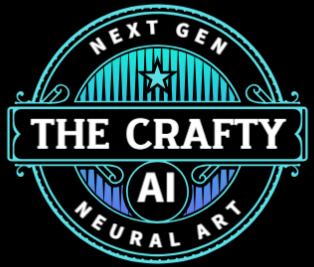Who Owns and Controls AI Technology
AI technology is primarily owned and controlled by major corporations and tech giants like xAI, Google, and Microsoft, who invest heavily in research and development. Governments and startups also play a role, with some nations regulating their use while innovative companies contribute to its advancement.
AI FOR TECH MINDED
Robin Lamott
8/20/20254 min read


In the rapidly evolving landscape of artificial intelligence (AI), the question of ownership and control has become paramount. As of August 20, 2025, AI technologies permeate every aspect of daily life—from personalized recommendations on streaming platforms to autonomous vehicles and advanced medical diagnostics. But who truly owns and controls these powerful tools? Is it the tech giants pouring billions into research, governments imposing regulations, open-source communities democratizing access, or emerging decentralized networks? This article explores the multifaceted dynamics of AI ownership, drawing on current trends, key players, and future implications.
The Corporate Titans: Proprietary Powerhouses
At the forefront of AI development are major corporations that dominate through proprietary models and massive investments. Companies like Microsoft, Google (Alphabet), NVIDIA, and Meta lead the pack, controlling vast datasets, computing resources, and intellectual property.
Microsoft's partnership with OpenAI exemplifies this dominance. OpenAI, founded in 2015 as a non-profit, transitioned to a for-profit model and received over $13 billion from Microsoft, giving the latter significant influence over ChatGPT and related technologies. Google's DeepMind, acquired in 2014, powers advancements in protein folding (AlphaFold) and quantum computing simulations, with Alphabet investing $100 billion in AI infrastructure in 2025 alone.
NVIDIA stands out for its hardware monopoly, with GPUs essential for AI training. Its market cap surpassed $3 trillion in 2025, fueled by demand for chips in data centers. Meta, under Mark Zuckerberg, open-sourced some models like Llama but retains control over core algorithms for social platforms.
Other notables include Amazon (AWS AI services), IBM (Watson), and Chinese giants like Baidu and Tencent, which control AI in Asia through state-backed initiatives. Startups like Anthropic (backed by Amazon) and xAI (Elon Musk's venture) challenge incumbents, but funding often ties them to big tech.
Forbes' 2025 AI 50 list highlights innovators like Anysphere and World Labs, yet most rely on venture capital from firms like Sequoia or Andreessen Horowitz, who exert indirect control through board seats. Executives such as Fei-Fei Li (Stanford HAI) and Daniela Amodei (Anthropic) shape directions, blending innovation with profit motives.
Proprietary AI offers polished, scalable solutions but raises concerns about monopolies. As eWeek notes, these companies drive the AI revolution in healthcare and finance, yet their closed systems limit transparency.
Government Oversight: Regulation and National Interests
Governments worldwide are asserting control over AI to address risks like bias, job displacement, and national security. In the US, the Trump administration's 2025 AI Action Plan emphasizes preventing "woke AI" in federal use and promotes American leadership. Executive Orders 14277 and 14278 focus on ethical AI deployment, replacing Biden-era memos.
State-level actions proliferate: California and Kentucky enacted laws regulating AI in decision-making, with 260 bills introduced across states in 2025, 22 passing. The One Big Beautiful Bill Act imposes restrictions on foreign entities in AI, aiming to curb Chinese influence.
Internationally, the EU's AI Act (effective 2024, with 2025 updates) classifies AI by risk, mandating transparency for high-risk systems. China controls AI via state-owned enterprises, prioritizing surveillance tech. Brookings highlights bipartisan US agreement on regulation, though fears persist that governments won't go far enough—60% of Americans worry about insufficient oversight.
No broad federal US law exists, but Congress debates pre-empting state rules, as in the May 2025 tech policy roundup. Pew Research shows experts and the public favor more regulation to balance innovation with safety.
Open-Source vs. Proprietary: The Battle for Accessibility
The debate between open-source and proprietary AI centers on control and innovation. Proprietary models, like those from OpenAI, provide reliability and support but at a cost—higher fees and vendor lock-in. They excel in compliance and performance but limit customization.
Open-source AI, such as Hugging Face's Transformers or Meta's Llama series, offers transparency, allowing global experts to audit and improve code. Forbes argues leaders must weigh costs: open-source demands infrastructure investment but fosters long-term savings and adaptability.
Businesses choose based on needs—proprietary for quick deployment, open-source for control. PYMNTS notes open-source reduces vulnerabilities through community scrutiny but exposes models to misuse. Towards Data Science highlights the developer's dilemma: proprietary for ease, open-source for ecosystem growth.
In 2025, hybrids emerge, blending both for balanced ownership.
Decentralized AI: Web3 and User Empowerment
Emerging from blockchain, decentralized AI (DeAI) shifts control to users via tokens and networks. Projects like Sahara AI enable monetizing data and models on blockchain, promoting "AI for all." PAI3 allows individuals to own AI nodes for privacy and earnings.
Bittensor ($TAO) incentivizes decentralized training, evolving from skepticism to institutional adoption with ETFs in 2025. Vana focuses on user-owned data for physical AI, as discussed at RoboCon 2025.
X discussions emphasize DeAI's role in data sovereignty, with ecosystems like Giza (zkML for privacy) and Flock (federated learning). Openledger uses Proof of Attribution for fair rewards. This counters corporate centralization, though challenges like scalability persist.
Key Figures and Future Implications
Influencers like Elon Musk (xAI, Tesla) advocate for ethical AI, while Sam Altman (OpenAI) navigates profit and safety. Musk's warnings about AI risks underscore control debates.
Looking ahead, AI's $243.7 billion market in 2025 signals growth, but ownership battles intensify. McKinsey reports 99% of companies invest in AI, yet only 1% feel mature. Decentralization and regulations may democratize control, but power concentrates among a few.
In conclusion, AI ownership is fragmented: corporations hold proprietary reins, governments regulate, open-source communities innovate, and DeAI empowers users. True control? It evolves with technology and society, demanding vigilance to ensure AI benefits all, not just the elite. As debates rage, one thing is clear—AI's future hinges on balanced, ethical stewardship.
© 2025. All rights reserved.

